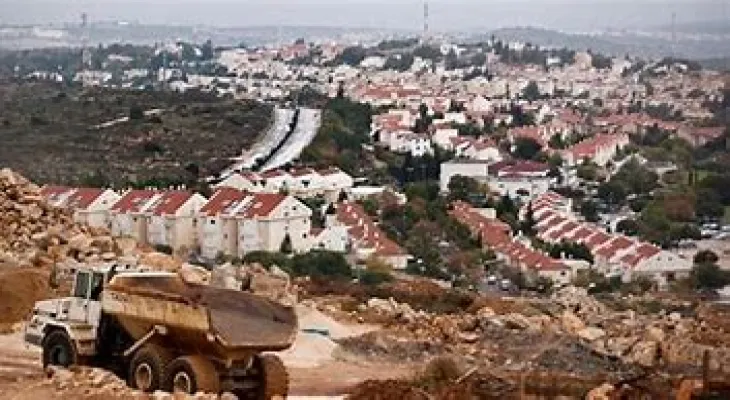Search here
Newspaper
Search here

Arab Canada News
News

Published: August 9, 2023
2023 has set a record-high for the construction of settlements in the West Bank and the legitimization of illegal outposts, according to the Peace Now organization which monitors settlements.
Since the beginning of the year, the Israeli government has legitimized 22 settlements that were previously considered illegal outposts, based on figures provided by the Peace Now movement to the Times of Israel. The organization reported that during the seven months since the start of the year, a larger number of outposts have been legalized compared to the entirety of previous years.
According to Israeli law, these outposts are now considered legal residential areas, even though they are still deemed illegal under international law, like all other settlements in the West Bank.
The year began with the swearing-in of the new government led by Prime Minister Benjamin Netanyahu, and the appointment of Bezalel Smotrich as Minister of Finance and a Minister in the Defense Ministry, with authority over civil affairs in the West Bank. Among the recently legitimized outposts is Homesh, a former settlement in the northern West Bank that was evacuated when Israel withdrew from the Gaza Strip in 2005 and has recently been re-established as a settlement site. This was made possible because the current government canceled the 2005 law regarding the Israeli withdrawal from Gaza, which also included the evacuation of four settlements in the northern West Bank, including Homesh.
The Supreme Court endorsed the cancellation last Wednesday, rejecting a petition filed by the "Yesh Din" human rights group, on the grounds that the outpost had been removed from private Palestinian land and transferred to Israeli state land.
Another illegal outpost that was authorized this year is Evyatar, also in the northern West Bank, which has been established and evacuated several times since 2012 and has become a symbol for settlement supporters. It was finally approved this year under intense pressure from Smotrich and National Security Minister Itamar Ben Gvir. In the new outposts, buildings also need to be legalized as four of the 22 settlements approved by the current government received retroactive planning permits from the Civil Administration in the West Bank, after illegal construction had already taken place.
Among these is Bnei Kidem, located in the desert of the West Bank and home to far-right Knesset member Simcha Rothman, the chairman of the Knesset's Constitution, Law and Justice Committee. The report revealed that in March Rothman's house was built illegally and has been subject to a demolition order for at least eight years.
Additionally, ten of the licensed outposts have not yet obtained planning permits, thus they are in a legal limbo where they are considered legal settlements under Israeli law but the buildings within them are illegal.
According to Peace Now, this year has also seen an increase in the establishment of new illegal outposts. Such outposts are usually evacuated by the Israeli army and police shortly after they are built, but the group stated that at least five outposts established in 2023 are still standing.
Since the Oslo Accords in 1993, around 160 outposts have not been evacuated, with an average of five sites per year. This number has already been reached in the first half of 2023. Israeli authorities do not provide information about illegal outposts, and the Civil Administration did not respond to the newspaper's inquiries regarding the new outposts.
The current government has also issued a record number of building permits in the West Bank compared to the years following the signing of the Oslo Accords, according to Peace Now.
The group stated that the Higher Planning Council, which approves building projects in the West Bank, met three times in 2023 and approved the construction of 12,855 housing units across the Green Line. Additionally, tenders were published for the construction of 1,289 units that have already been approved.
In the council's latest meeting on June 26, approximately 5,700 housing units were approved in Ma'ale Adumim, Givat Ze'ev, Ariel, Beitar Illit, and a series of smaller settlements. In the first six months of the year, a record was broken that had been set throughout 2020, when 12,000 housing units were approved, according to Peace Now.
Typically, between 1,000 and 8,500 units are approved annually on average, the group noted.
Comments